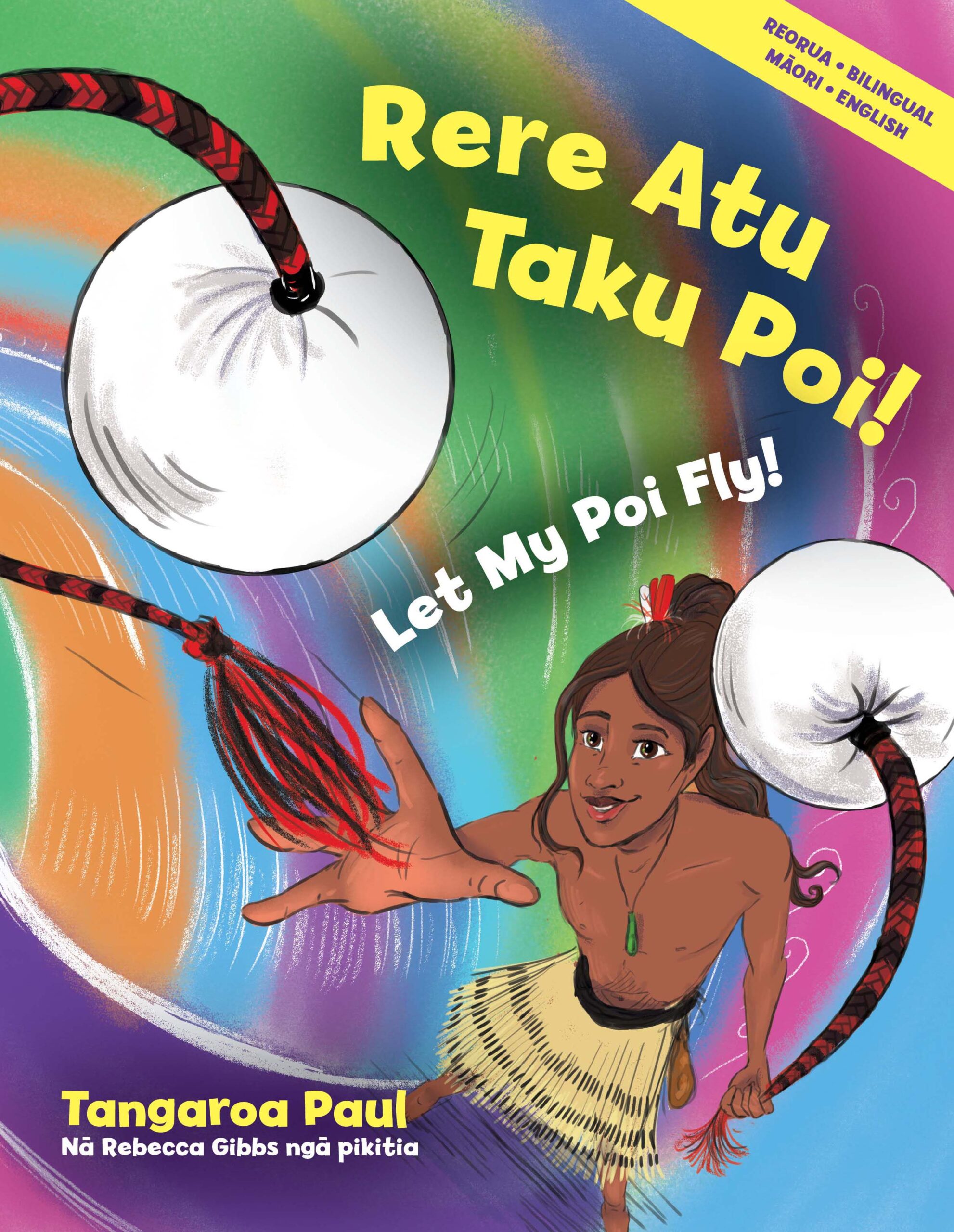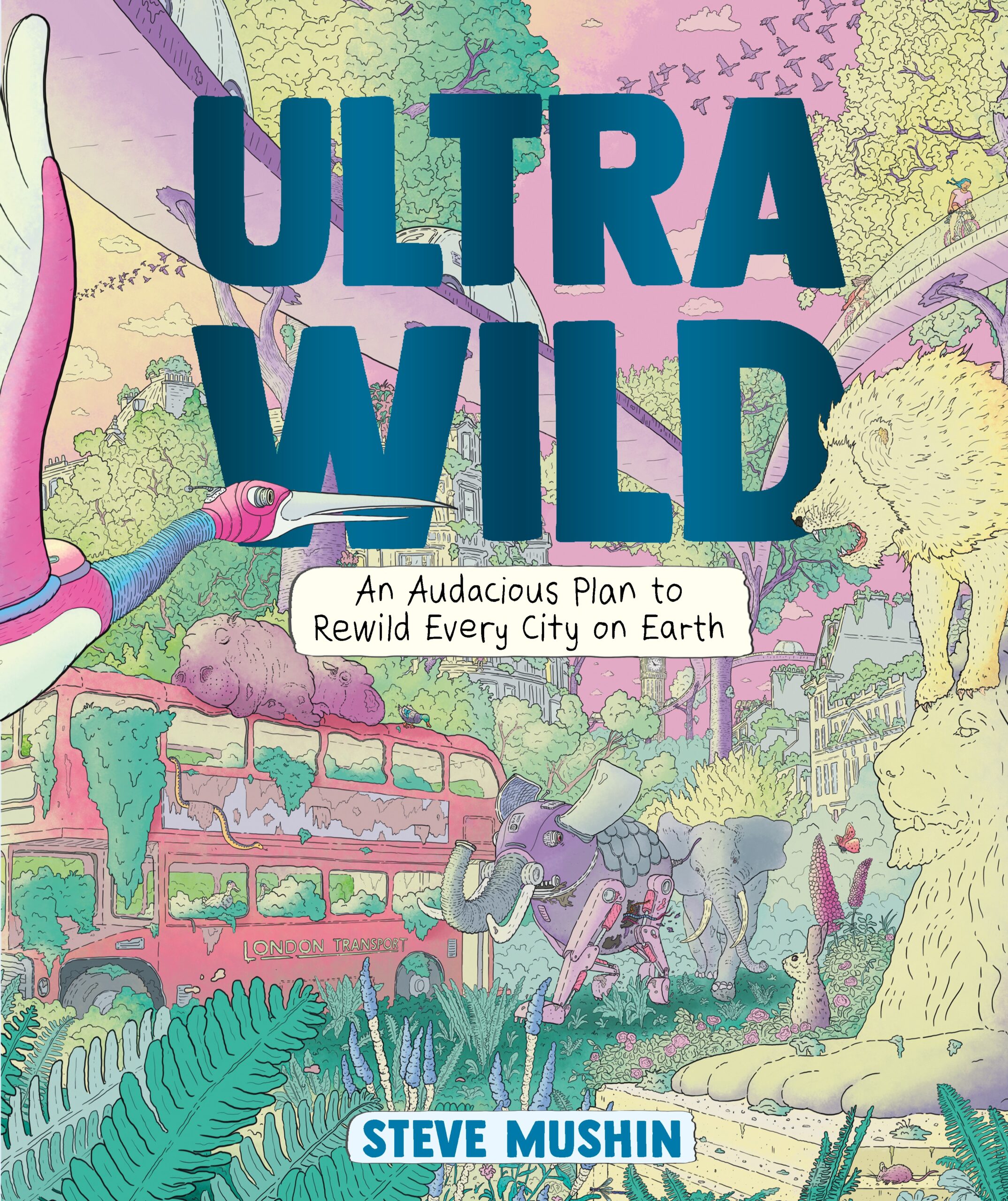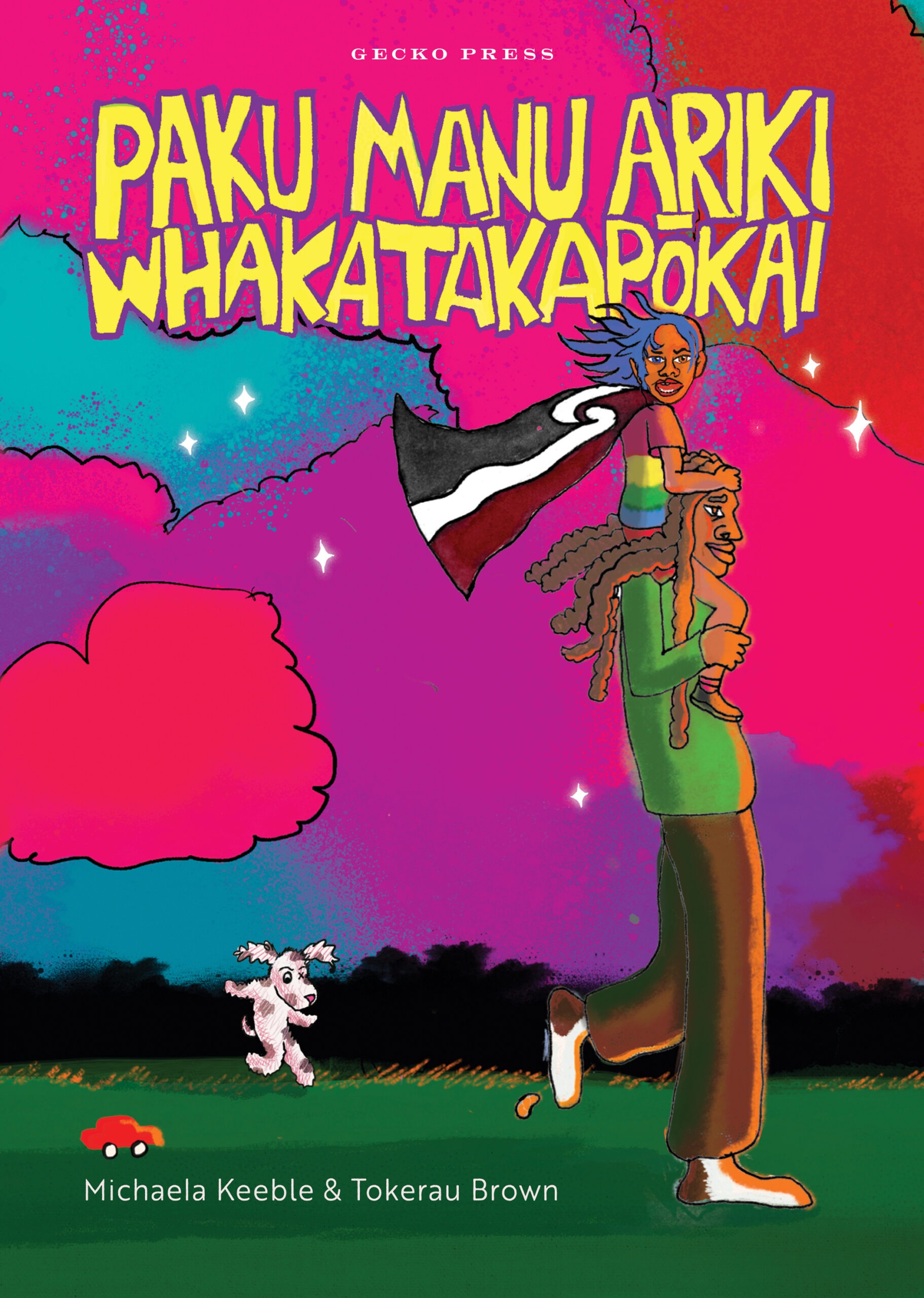We’ve prepared something special this year to honour the Best First Book Finalists. Michael Park School librarian Kura Rutherford corralled her student librarians into considering the shortlist and awarding their own medals for merits they deemed worthy. See the list of all the category finalists here and and keep an eye out for our coverage of another category next week!
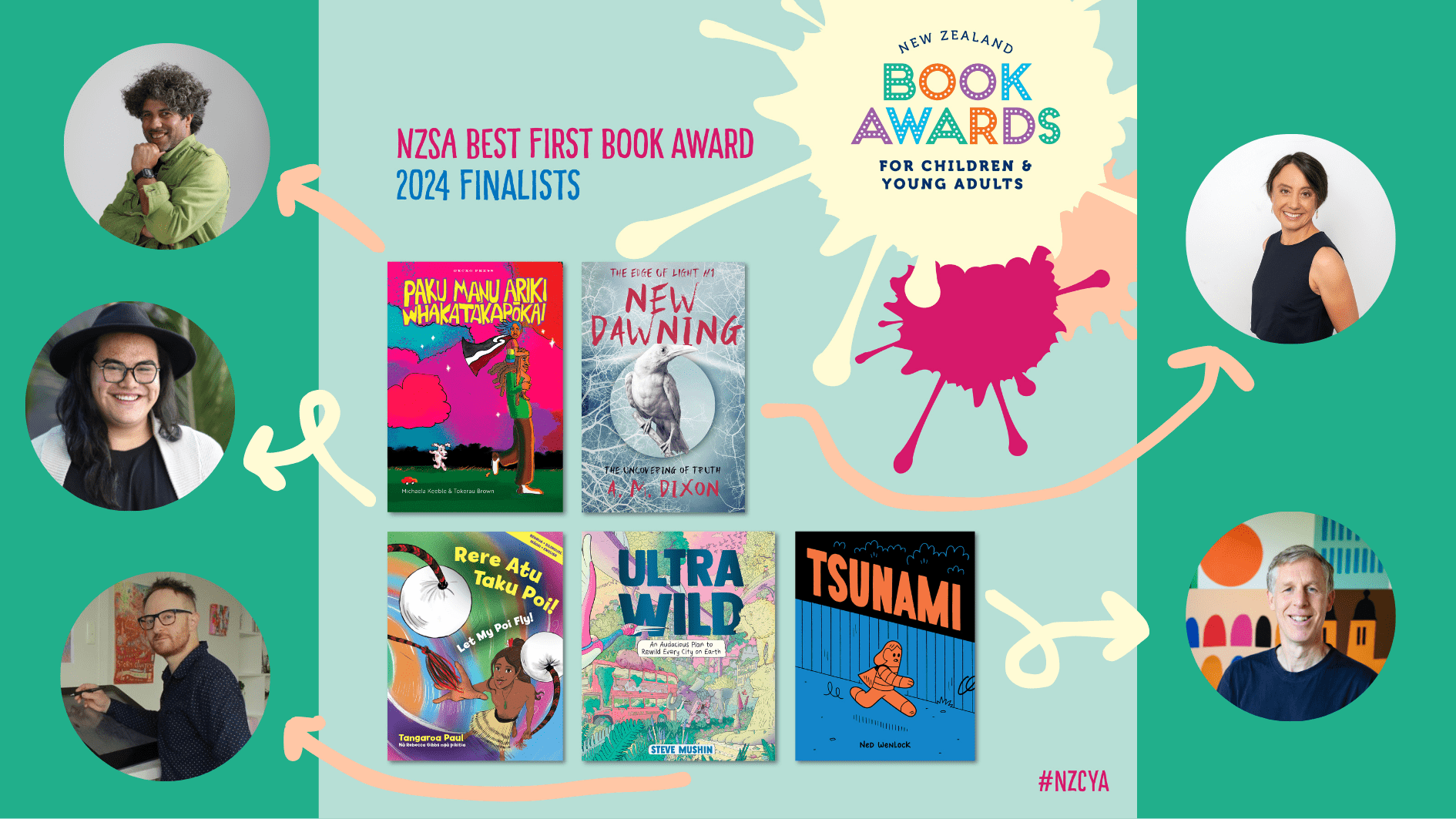
An audacious* plan to develop our own medal ceremony
We’ve been overtaken by medal mania at our school; there’s the European Football Championships, which one of our lucky student librarians got to witness live in Germany, there’s the Tour de France (all those French villages and so much hill-climbing inspiration that it makes even an aging librarian want to take up mountain cycling), there is the build-up to the Olympics (dressage in the Versailles gardens! Surfing at Teahupo‘o!), and then there are the New Zealand Book Awards for Children and Young Adults which we were lucky enough to participate in this year, thanks to the clever idea of the judging panel to ask for student voice.
*Side note on the word ‘audacious’, which we clearly stole from the title of Ultrawild. According to the Oxford Online Dictionary it means, ‘showing a willingness to take suprisingly bold risks’, but apparently it also means ‘showing an impudent lack of respect’. Dear New Zealand Book Awards for Children and Young Adults, we love you, we love your work, and our daring medal experiment was only ever intended as a fun way to highlight and delve deeper into the wonderful books on your shortlist, and we’ll wait as patiently as we can to see what the brilliant proper judges in the brilliant proper NZ Book Awards say about these books.

In honour of all of these special medal/cup/award-laden occasions, and in an effort to provide more coverage for the finalists of the New Zealand Book Awards for Children and Young Adults, we invented our own ceremony here at school to award medals to all the books in the ‘best first book category’ of the book awards.
The medal criteria: the parameters were quite loose for this bold experiment: ‘if you could dream up an award ceremony, which medal would this pukapuka win? And would any of the other pukapuka be in the running for the same award?’ There are limitations to having no real rules. A bit like returning a classroom to order after free play, not everything always fits tidily back inside the boxes. Consider yourself warned.
The judges of our impromptu medal ceremony: 15 student librarians from Year 7 to 13, with a little help from an enthusiastic school librarian who is almost certainly about to take up cycling.
The five contenders
- New Dawning by A.M. Dixon (One Tree House): the first book in a new YA series, set on a post-apocylptic island, Littleton, near Christchurch. In Littleton, climate change has already wreaked havoc. What is left is a community cloaked in permanent semidark due to an extensive cover protecting the island from the damaging effects of the sun. The story, set hundreds of years in the future, is a fascinating reflection of current issues, and a sometimes-uncomfortably-relatable realisation that it may not be solely science, or truth, or activism, that will save us all if disaster strikes.
- Tsunami by Ned Wenlock (Earth’s End Publishing): a YA graphic novel that turns a conventional bullying story arc completely upside down. Life is not going well for Peter; he’s got no friends, he is being bullied at school, and his parents are having troubles. As the story zooms close up on the interactions between bullied and bullying, you might think you know where the story is headed, but you’ll probably be wrong. The graphics are simple, cartoony, stylised, and you would be forgiven for mistakenly handing this on to a junior student. Infact, as we get to know the characters better, it becomes clear that it is for older readers. The deceptively simple storyline is dark and challenging and highlighting elements of New Zealand society that don’t get talked about a lot.
- Paku Manu Ariki Whakatakapōkai by author Michaela Keeble and illustrator Tokerau Brown (Gecko Press): have you ever had a conversation with a kid where you come away feeling like you’ve travelled to infinity and back with 20:20 vision every inch of the journey? This children’s picture book has put one of those conversations on paper in a way that is moving, vivid and completely authentic. It is the illustrations by Tokerau Brown that have gained this book a place in the Best First Book category, and the rich, vibrant illustrations add so much to the story, expanding it beyond words in a way that perfectly enhances and reflects the boundariless thinking of the narrator.
- Ultrawild: An Audacious Plan to Rewild Every City on Earth by Steve Mushin (Allen & Unwin): is a graphically spectacular exploration of zany ideas to help rewild our cities, many involving sewage. All 77 pages of illustration in this non-fiction large format book are jam-packed with ideas to help nature rebuild itself. Everything about this books begs for active interaction with the ideas and experiments, so it is brilliant news that there is a website with calculations, teacher notes, and an invention log.
- Rere Atu Taku Poi! Let My Poi Fly! by author Tangaroa Paul (Muriwhenua) and illustrator Rebecca Gibbs (Oratia books): A gentle story with the potential for big conversations, Rere Atu Taku Poi! is a beautiful depiction of how stereotypes can be broken down when we follow our heart. Rangi loves doing the poi but he gets teased about it by the other members of the kapa haka, until he saves the day by performing poi when Hine, the leader, gets sick. Written in te reo Māori and English, with vibrant illustrations and universally important themes, this is a treasure.

Medal for most ingenious idea
Showing that this country’s ingenuity extends far beyond 4.064mm gauge fencing wire, all of these books have at their core ingenious ideas, inventions and themes that guide us toward a better future. As one judge put it, “these ideas are even better than a bungy jump or egg beater”.
Contenders
Most ingenious ideas for tackling climate change
Utrawild: Reading Ultrawild is like sitting down to an endorphin-filled brainstorming session after sprinting twice around the field on a frosty morning and then skulling an extra-sweet hot chocolate. The concept of ‘no rules’ has been applied here with great success – no idea is too big, too preposterous. And it’s not just one ingenious idea, it’s a book packed to the brim and beyond. This is a book of ideas that calls us to action.
New Dawning’s big cover to hide the sun seems to be working for now…watch this space though, as the protagonist seems to be developing an appreciation for sunrises. This is the book to motivate us to take more notice of the ideas in Ultrawild.
Most ingenious story arc
Tsunami, you surprised us. The storyline made us a little bit sad, but that’s because it’s pretty real. It’s easier to go for the safe ending, so Wenlock gets extra points for breaking some rules. Adults, read it too. This one deserves some big conversations.
Paku Manu Ariki Whakatakapōkai: we know this book is in the running for the beautiful illustrations, but just quickly, why has this idea not been done before? Who hasn’t had a conversation with a seven year old that they’ve wanted to record and share with the world. The way seven year olds see things – the wonder, the workings out of everything – remind us about the best of life, and Paku Manu Ariki Whakatakapōkai (“you can call me Paku Manu Ariki Whakatakapōkai”) has given us a gift.
Most ingenious timing
Rere Atu Taku Poi! Let My Poi Fly!: for following up on some inspiring moments from last year’s Matatini, with this gentle reminder to keep having the conversations.
Winners
Ultrawild: seven years’ worth of ingenious ideas in one book. This is medal worthy for sure.
Tsunami: for being brave and going back for the uncomfortable rewrite.
Medal for best inclusion of a rainbow
It’s amazing what nature gives us for free (take sunrise and sunset for instance: a twice daily never-seen-before spectacle more vibrant even than the aurora we kind of saw last month). A rainbow usually means sunshine has snuck through the rain clouds, and after 18 months straight of rain in 2022-2023, we’ll take every little ray of that sunshine we can get. Rumour has it there is a pot of gold at the end of every rainbow, and if you see more than two in a day, that is your reward for living in a place with fickle weather.
Contenders
Paku Mani Ariki Whakatakapōkai: Paku Manu himself is all about rainbows. Sometimes he’s in a rainbow t-shirt, “When I wear my rainbow t-shirt, all you see is a blur of colour. See? I’ll do it again. See?” and sometimes he’s in rainbow pants. Sometimes he’s pedalling a rainbow through the sky above his marae. From the ROYGBIV-coloured front cover to the sweeping colours in the last page, this is a delightful celebration of rainbows.
Rere Atu Taku Poi! Let My Poi Fly! Inclusivity, diversity and rainbow-colour backdrops everywhere.
Winner
Rere Atu Taku Poi! Let My Poi Fly! Double rainbows for the win!
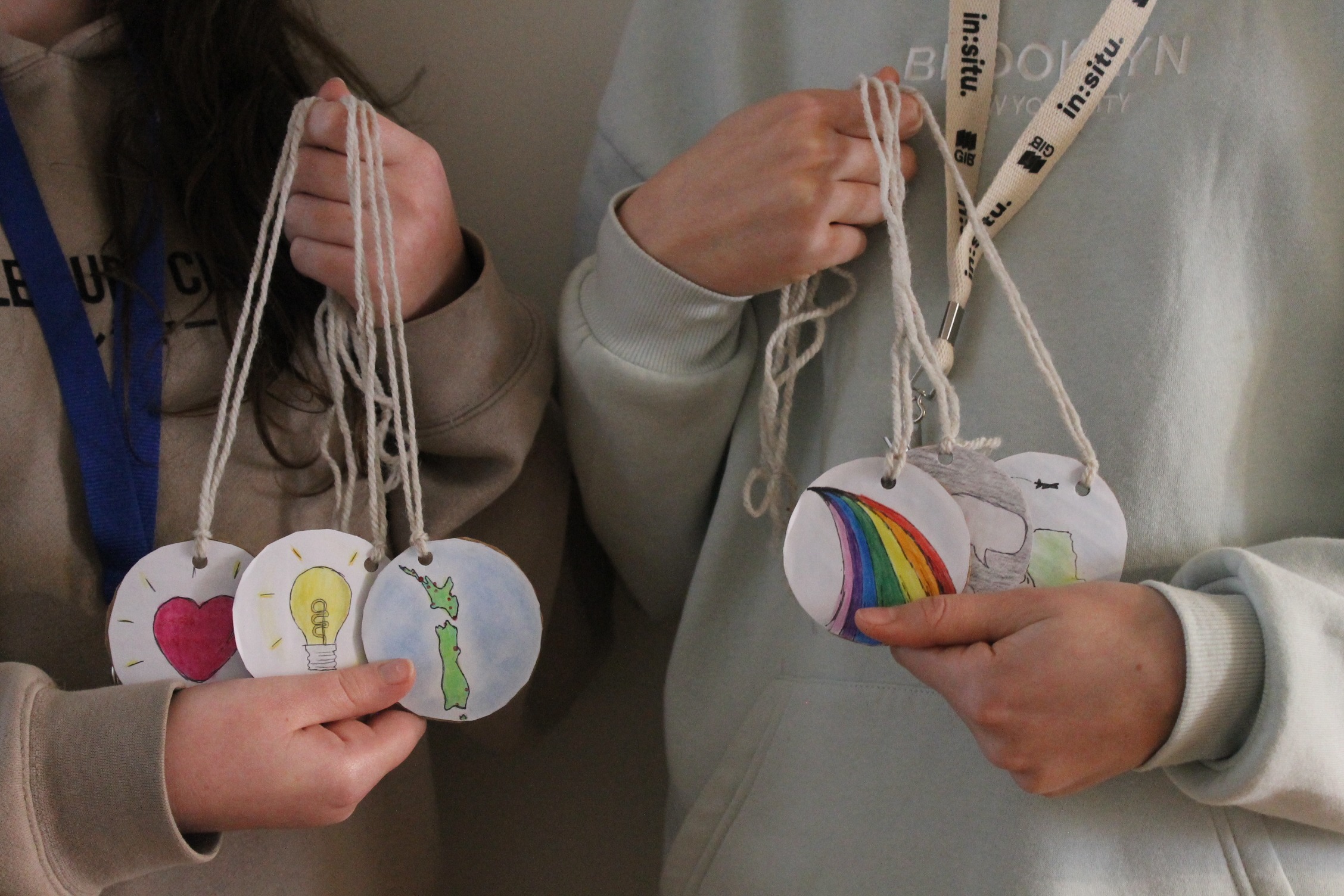
Medal for the longest distance travelled
Books take us places. But some books take us further than others, and we wanted to offer a medal for those long distance travellers.
The contenders
Paku Manu Ariki Whakatakapōkai: From asking piercing questions about colonisation, to musing about his whakapapa lineage from the Atua, Paku Manu Ariki Whakatakapōkai does what seven year old’s do best – uses tangential thinking to help make sense of the world. Tokerau Brown’s illustrations take us from the marae to outer space, to the depths of the deep blue, to Hawaiiki and back to the marae via a flying bike, and that is not all.
Ultrawild: From Leonardo da Vinci’s sketches of a helicopter in 1493 to Henry Ford ‘faddish’ cars in 1903, through to present day experiments with battery use, Mushin uses illustrations and facts as a powerful way to remind us we need to turn things around instead of hurtling relentlessly forward.
New Dawning: this can’t be discounted for the award for longest distance travelled, but equally it can’t win. Boat voyages do happen in New Dawning, but in Book 1 we still don’t know what is out there beyond the covers. Littleton is a tiny world with fixed boundaries; no one leaves except for the chosen few who are chosen and sent off by boat in a candlelit ceremony. We don’t know where they go. It could be miles away, it could just be to a watery death.
Winner
Paku Manu Ariki Whakatakapōkai: This boundless journey provides so much to unpack with a class, and the illustrations expand it even more. A whole middle school social studies unit could be centred around this, especially around how meaning is conveyed and extended through illustration (thanks, Gecko Press, for providing Teacher Notes).
Medal for the best conversation starter
Arguably, any book that leads us to have conversations and to ask questions is a good book—for this medal these books are all winners.
Contenders that are also joint winners
UltraWild: as one 13-year-old judge shut the book, he inhaled loudly then said, “Firstly, about all that sewage…” Is there a more captivating opening line?
Rere Atu Taku Poi! Let My Poi Fly: At last year’s Matatini, there were signs that this conversation is already being had, and we are cheering Rangi on.
Tsunami: post-book conversations are a must.
Paku Manu Ariki Whakatakapōkai: that awesome kid has started all the conversations! So many.
New Dawning: this could be more than a conversation starter, it could be a class reader. Text comparisons with other dystopian novels, looking at conformity versus rebellion, societal structures, and the impacts of climate change here in Aotearoa.
Medal for the book best representing its country
Books can reflect back to us who we are, and help us build up a sense of identity. Sometimes books do these in brand new exciting ways or they can do it in ways that feel so familiar that we see things anew.
Contenders
Paku Manu Ariki Whakatakapōkai: the issues and accompanying illustrations are tied so deeply to identity and place, this could only be set in Aotearoa.
Rere Atu Taku Poi! Let My Poi Fly!: Like Paku Manu, the storyline and specifics of this pukapuka are rooted in Aotearoa, New Zealand, but the theme of finding your place is definitely universal.
New Dawning: a climate change dystopian novel set in Aotearoa. As far as we know, this is a first, and is something that needs to be celebrated.
Tsunami: this feels local in a way that reflects the colour palette of kiwi-noir.
Winner
New Dawning: setting a climate change story here is a massive step towards make us realise that it is us, right now, who need to take action.
Medal for the most heartwarming
Winners
One of the powers of art is its ability to invoking feelings, and all of these books did that, with special mention to joint winners:
Paku Manu Ariki Whakatakapōkai : Judge’s comments: “It was just straight-up heartwarming. No more words needed.”
Rere Atu Taku Poi! Let My Poi Fly! Judge’s pointed out this book is a compassionate, brave and inspiring reminder to just be yourself, and they loved it.
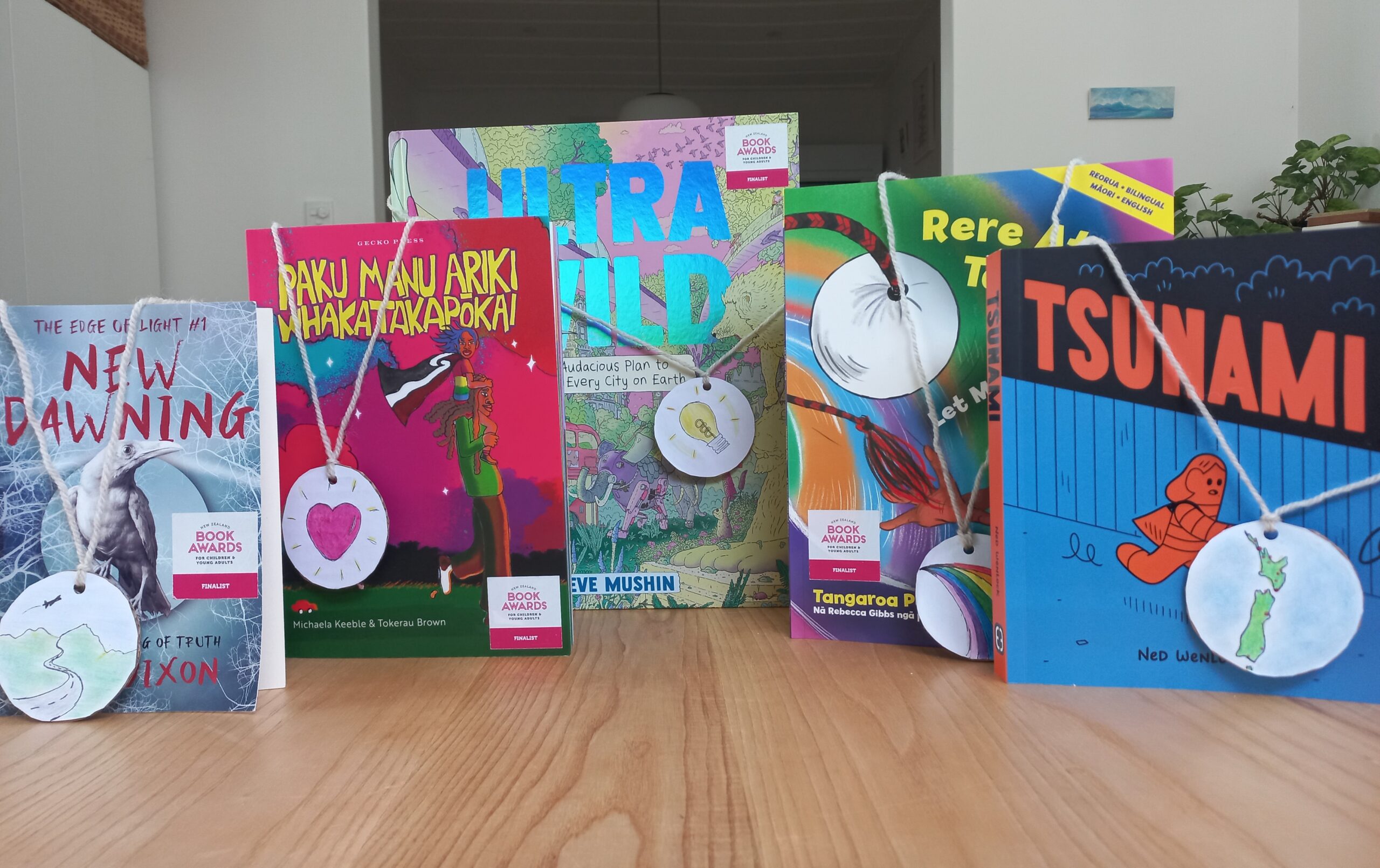
Medal for the most nominations
An all-rounder medal needs to go to the book that was nominated for the most categories in our quirky little pretend-ceremony, including many categories that didn’t make the cut because they only applied to this one book.
Fom ‘the most poop’, to ‘the best scientific facts’, ‘best use of speech bubbles’, ‘most detail!’, ‘most massive-est slingshots’, and for ‘coolest quirkiness’ the winner is UltraWild by Steve Mushin. This book is a thing of extraordinary genius, and its influence will walk right off the page and into the minds and actions of anyone who reads it. It’s hopeful, it’s audacious (yes, that word went straight to our wall as Word of the Week), and this book could sit on a shelf at a bookshop anywhere in the world. We hope it does!
Closing remarks
It is clear why all of these books have made it as finalists in the New Zealand Book Awards for Children and Young Adults. They’re insightful, inspiring and engaging, and they help us build a stronger sense of who we are.
Thank you to the student librarians for undertaking this experiment. You were such good sports, though one student did say quite early on, “what’s the actual point of this, Miss”? I do hope everyone got the point in the end – that there are so many medal-worthy moments in books, if we go looking. If everyone didn’t get that concept, perhaps I won back a few points for allowing some rule-breaking in the library in the name of creativity.
